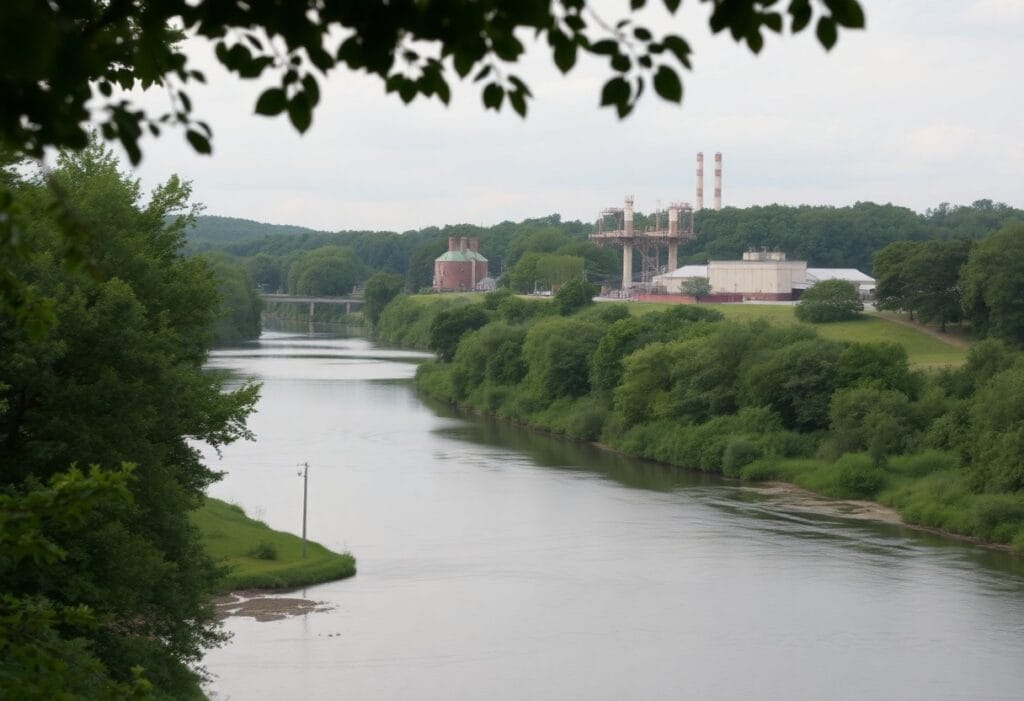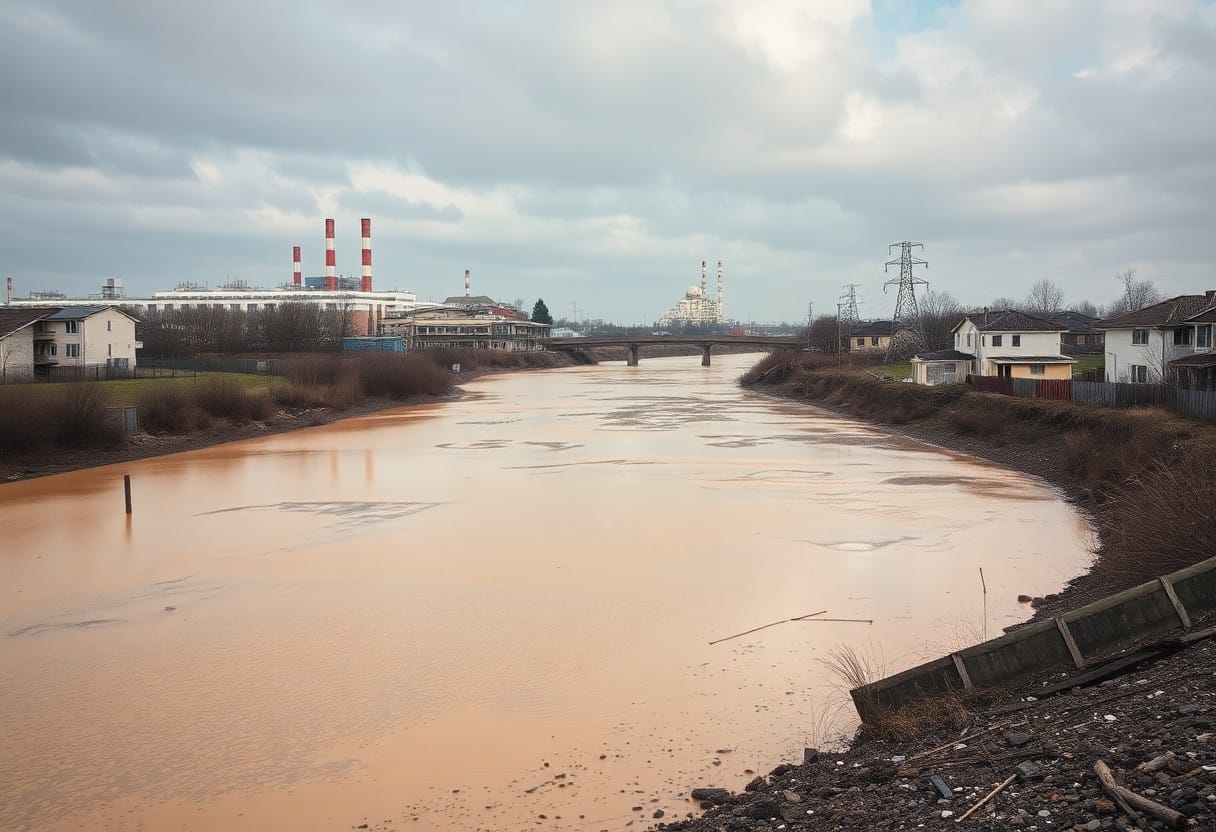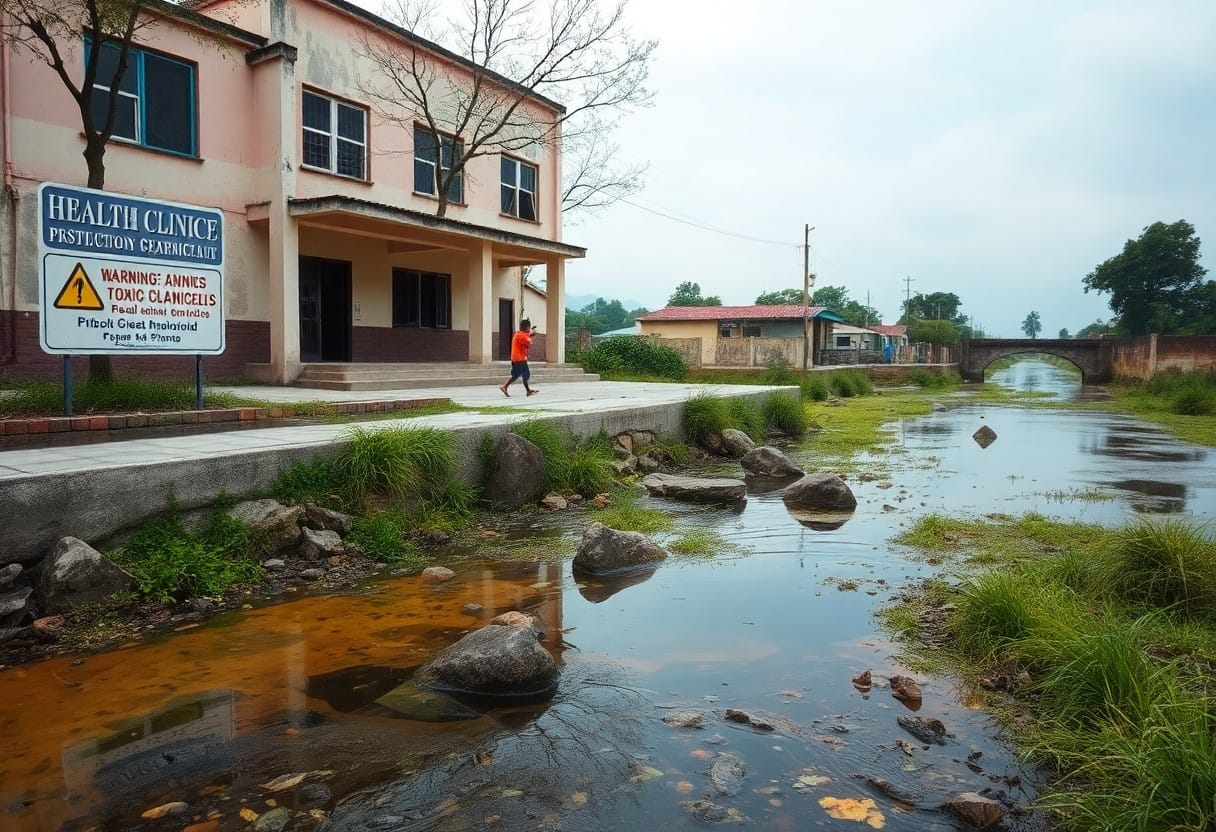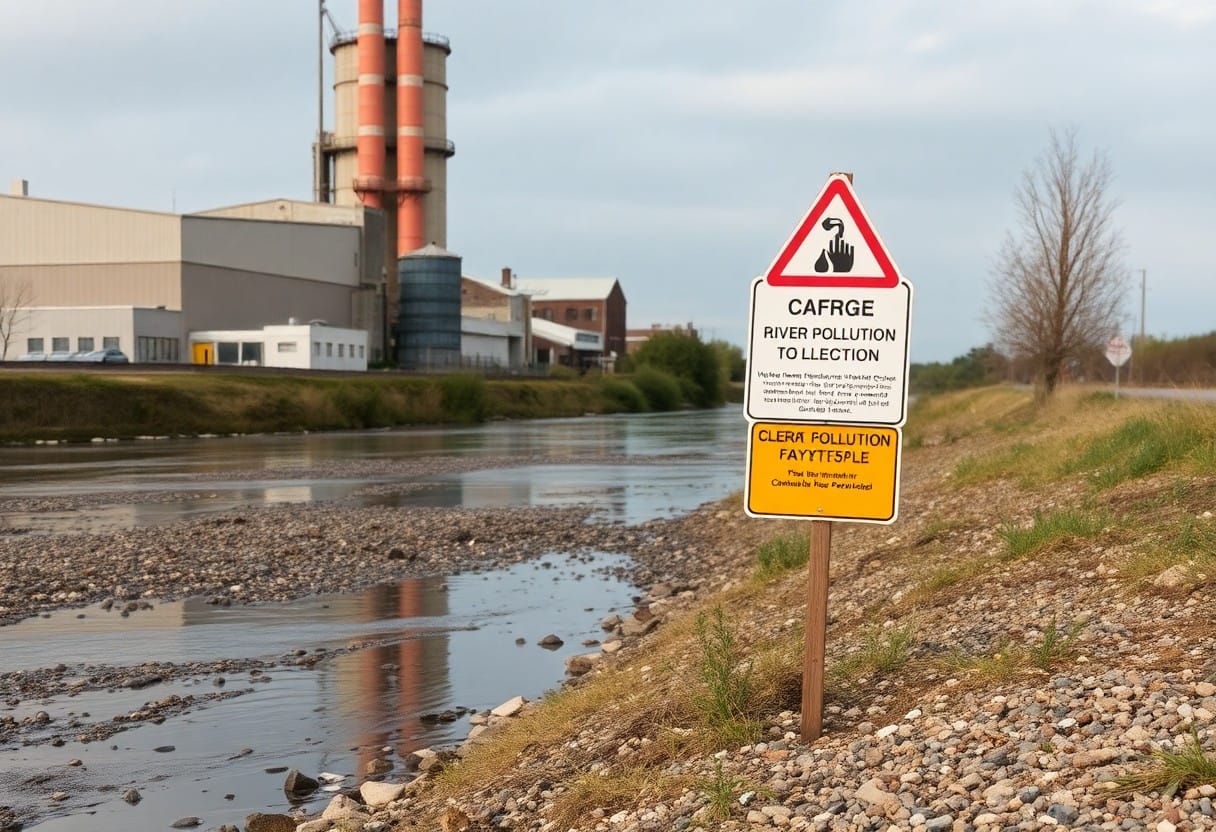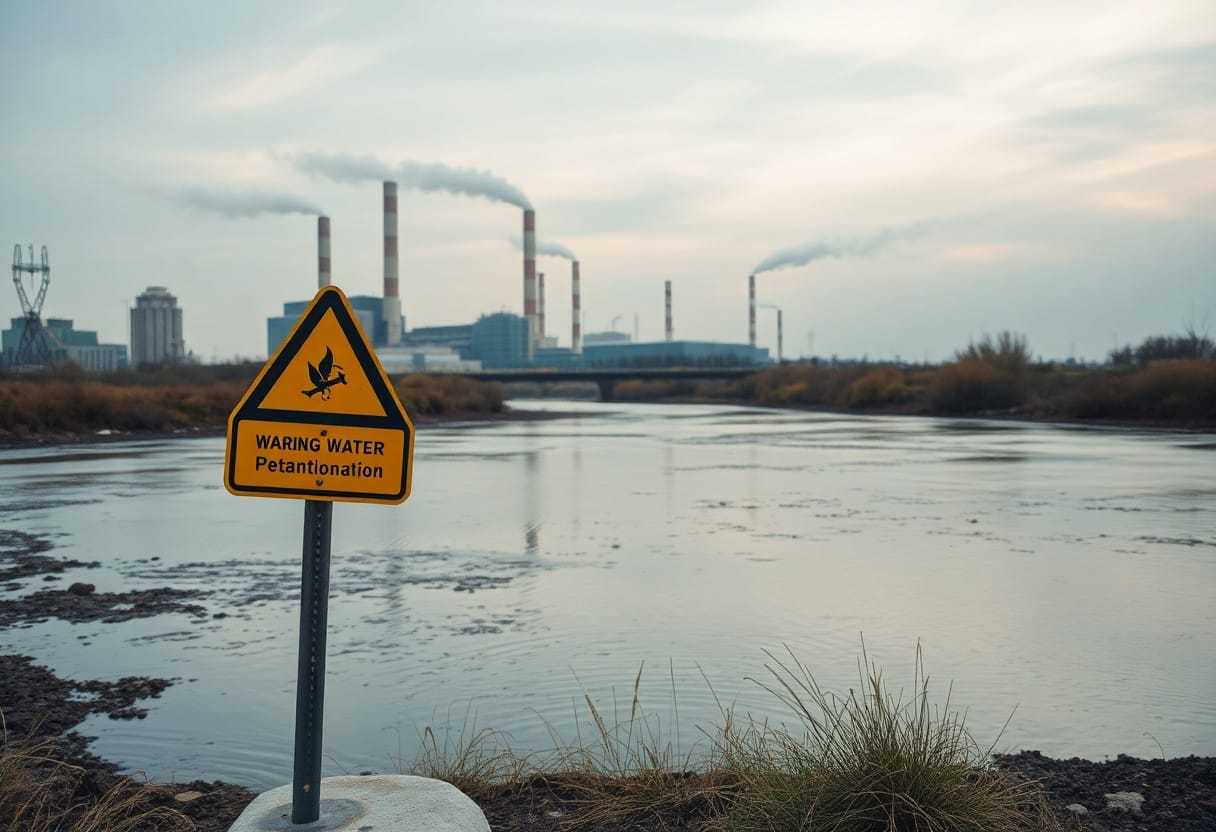Fayetteville faces a significant challenge with the contamination of PFAS chemicals from the Chemours facility, impacting your local water supply. The presence of these toxic substances raises serious concerns regarding safety and public health. However, ongoing efforts to address this issue and potential remediation strategies may offer hope for restoring clean water to your community. In this post, we will explore the current state of Fayetteville’s water supply, the implications of its contamination, and the steps being taken to ensure your access to safe drinking water.

Overview of Fayetteville’s Water Supply
Before discussing the impact of Chemours’ chemicals, it’s vital to understand Fayetteville’s water supply system. Your city’s water originates mainly from the Cape Fear River, which has historically served as a reliable source for residential and industrial needs. However, this vital resource is now facing challenges due to contamination risks and demands on supply management.
Current Water Source Analysis
Against this backdrop, Fayetteville’s reliance on the Cape Fear River comes into focus as a double-edged sword. While the river provides a significant volume of water, the introduction of chemicals into your water system threatens the overall quality and safety of supply. You must consider how pollution and climate change will influence future access to clean water.
Historical Context of Water Supply Issues
On looking back, you will see a pattern of water supply challenges in Fayetteville. Over the years, there have been various environmental concerns, from industrial discharges to agricultural runoff, impacting the integrity of your water sources. The city’s efforts to tackle these issues serve as a lesson on the importance of water quality management.
Further, Fayetteville has faced several significant incidents that raised alarms about water safety and availability. For instance, recurring instances of pollution from nearby industries have prompted increased scrutiny and regulation. These historical struggles underscore the necessity of robust oversight to safeguard your water supply and inform ongoing discussions about the long-term viability of sources like the Cape Fear River amid new threats posed by emerging contaminants.
Impact of Chemours and Chemical Contamination
Assuming you reside in Fayetteville, the direct impact of Chemours’ operations may deeply concern you. The chemical contamination from this facility raises serious questions about the safety of your water supply. Water quality tests reveal the presence of hazardous substances, making it imperative for the community to stay informed about ongoing remediation efforts and potential health risks.
Types of Chemicals Involved
By understanding the types of chemicals involved, you can grasp the gravity of the situation. The following table outlines the primary contaminants linked to Chemours:
| Chemical | Impact |
| PFCs | Potential health risks, including cancer |
| PFOS | Associated with liver damage |
| GenX | Endocrine disruption |
| Heavy metals | Neurological issues |
Recognizing your local environment’s vulnerability is imperative in advocating for safer practices and regulations.
Environmental and Health Implications
Before you engage with your local water supply, it’s important to consider the environmental and health implications of contamination. The substances emitted by Chemours not only jeopardize your water but also impact the broader ecosystem.
Implications of chemical contamination extend far beyond immediate health concerns. Exposure to harmful compounds in your water can lead to serious ailments, including cancer, liver damage, and neurological damage. Moreover, these chemicals can disrupt wildlife, affecting biodiversity. It is imperative that you stay informed and advocate for rigorous monitoring and remediation to protect both your health and the environment.
Recovery Efforts and Strategies
Some recovery efforts in Fayetteville focus on comprehensive strategies to mitigate the impacts of Chemours’ chemicals on the local water supply. Collaborative actions involve government agencies, environmental organizations, and the community, ensuring a multifaceted approach to restoring water quality. These strategies include extensive monitoring, regulation enforcement, and education on sustainable practices to prevent further contamination.
Remediation Techniques
Beside traditional cleanup methods, innovative remediation techniques are being adopted to address the chemical pollutants in Fayetteville’s water. These techniques include advanced filtration systems and bioremediation, where natural processes are harnessed to break down harmful substances, ensuring a safer water supply for residents.
Community Involvement and Stakeholder Roles
For a successful recovery, community involvement and the roles of various stakeholders are vital. Active participation from local residents, advocacy groups, and officials is vital in monitoring efforts, advocating for transparency, and shaping future water policies.
Consequently, engaging the community empowers you with a sense of ownership over your water supply. Local organizations can mobilize support for initiatives focused on recovery and sustainability, while your input can provide valuable insights into the challenges faced. Stakeholders, including local government and industries, must facilitate open communication to ensure that everyone’s concerns are addressed. Together, your collective efforts can lead to a more informed and proactive community, helping to safeguard Fayetteville’s water resources for future generations.
Regulatory Response and Oversight
All stakeholders in Fayetteville are awaiting the outcome of regulatory actions regarding Chemours’ chemical discharges. Local, state, and federal agencies are re-evaluating existing regulations and developing more stringent oversight to ensure public safety and environmental protection. These efforts aim to assure residents that the water supply remains safe and to prevent further contamination in the future.
Local and State Regulations
Oversight at the local and state levels is imperative for monitoring water quality and enforcing compliance with environmental laws. In response to the contamination, local agencies have strengthened testing and reporting protocols, while state regulations are being updated to include stricter limits on chemical emissions. You can trust that these measures are designed to protect your community’s health and environment.
Federal Guidelines and Support
Against this backdrop, federal guidelines play a pivotal role in shaping the response to chemical contamination. You should be aware that federal agencies are working closely with state officials to establish baseline standards for safe water levels and to allocate resources for remediation efforts.
A comprehensive approach is vital for addressing this issue. Federal guidelines outline the safety levels for various contaminants, emphasizing the need for immediate action to mitigate health risks. Additionally, the federal government provides financial support for cleanup efforts and can assist in monitoring compliance with the established standards. By ensuring these guidelines are upheld, you can feel more confident that every effort is being made to rectify the situation and protect your water supply from harmful chemicals in the future.
Future Projections for Water Supply Recovery
For Fayetteville’s water supply to recover effectively, ongoing monitoring, remediation efforts, and community engagement will play pivotal roles. As industries, including Fayetteville Works, implement changes, the area can regain confidence in its water systems. Recovery projections depend significantly on regulatory compliance and the commitment of local stakeholders to prioritize public health and safety.
Timeline for Recovery
The anticipated timeline for recovery of Fayetteville’s water supply largely hinges on the remediation efforts undertaken by Chemours and the local government. Experts estimate that initial improvements may be observed within a few years, but complete restoration may take over a decade, emphasizing the need for sustained efforts.
Long-term Sustainability Measures
On a broader scale, addressing the water challenges in Fayetteville necessitates implementing long-term sustainability measures. These actions can include stricter regulations on discharges, advanced treatment technologies, and community education on water conservation practices.
Even with significant challenges ahead, the adoption of advanced filtration systems and environmental standards will strengthen the resilience of Fayetteville’s water supply. By investing in ongoing monitoring and establishing community partnerships, you can help ensure that local water resources are not only recovered but also safeguarded against future pollutants. These measures promote public health and assure the sustainability of the water supply for generations to come.
Final Words
Summing up, the recovery of Fayetteville’s water supply from Chemours’ chemicals hinges on ongoing efforts to address contamination and safeguard your community’s health. As you stay informed about the situation, it’s necessary to recognize the long-term implications of PFAS, also referred to as forever chemicals. To explore more about the environmental and health impacts on the Cape Fear River, you can read this insightful article on Forever chemicals, forever concerns: Cape Fear River and …. Your awareness can play a significant role in advocating for a safer water future.


